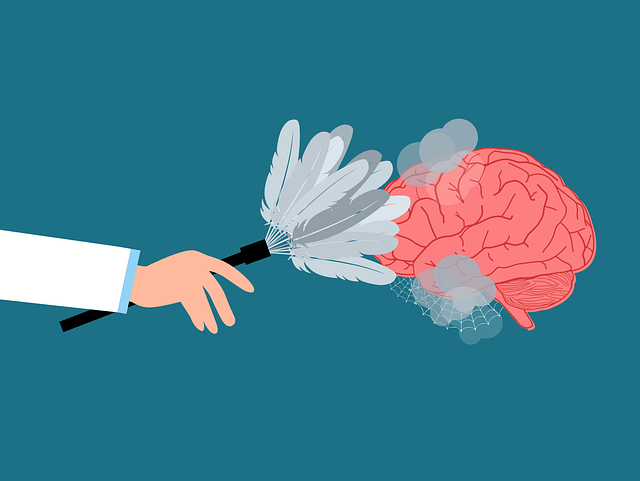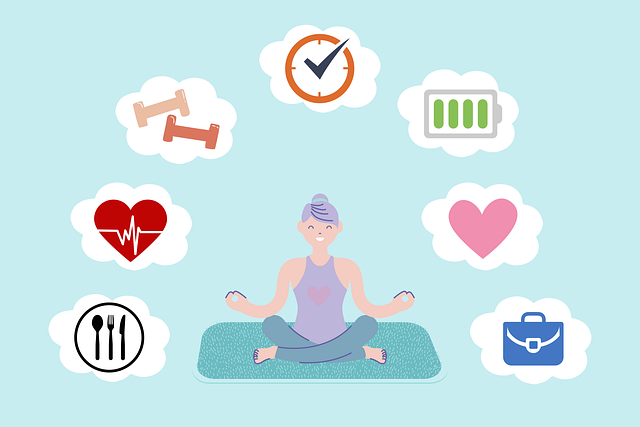Lakewood Sexual Addiction Therapy emphasizes self-care as a vital tool for managing life's challenges and improving mental wellness. It encourages individuals to prioritize their physical, mental, and emotional well-being through self-discovery exercises, compassion cultivation, and practices like meditation and therapy. This process involves identifying personal needs, setting boundaries, and building supportive relationships. By creating personalized self-care routines and addressing barriers such as busy schedules or financial constraints, individuals can enhance resilience and overall mental health. Lakewood Sexual Addiction Therapy offers tailored solutions like Social Skills Training and Mental Wellness Journaling to help clients overcome obstacles and establish sustainable self-care practices.
Self-care is not a luxury, but an essential practice for maintaining overall well-being. This article explores the fundamentals of self-care, guiding you on a journey towards personal growth and improved mental health. We’ll delve into strategies to recognize your unique needs, cultivate self-love, and seamlessly integrate self-care routines into daily life. Additionally, we’ll address barriers and provide insights from Lakewood Sexual Addiction Therapy to help sustain long-term healthy habits.
- Understanding Self-Care: The Foundation of Well-being
- Identifying Personal Needs and Prioritizing Self-Love
- Integrating Effective Self-Care Routines into Daily Life
- Overcoming Barriers and Sustaining Long-Term Self-Care Practices (with references to Lakewood Sexual Addiction Therapy)
Understanding Self-Care: The Foundation of Well-being

Understanding self-care is the foundation for cultivating well-being and resilience, especially in navigating life’s challenges. It involves recognizing and prioritizing your physical, mental, and emotional health, ensuring a harmonious balance that empowers you to face daily stressors and long-term goals. Self-care isn’t merely an indulgent act but a necessary practice that enables individuals to recharge, reflect, and rejuvenate. Incorporating self-awareness exercises and compassion cultivation practices can be transformative, helping one to understand their needs better and respond to them with kindness.
At Lakewood Sexual Addiction Therapy, we emphasize the importance of these foundational elements in our crisis intervention guidance. By promoting self-care, we aim to equip individuals with tools to manage stress, anxiety, and other mental health challenges effectively. Self-care practices such as meditation, therapy sessions, and engaging in hobbies can serve as powerful resources for enhancing overall well-being and fostering positive relationships.
Identifying Personal Needs and Prioritizing Self-Love

In the journey towards improving self-care practices, the first step is often the most transformative: identifying personal needs. This involves delving into one’s inner world to understand what truly nourishes and rejuvenates the mind, body, and spirit. It’s about recognizing that every individual has unique requirements for self-love, which can range from solitary activities like meditation or journaling to social connections and creative pursuits. At Lakewood Sexual Addiction Therapy, we emphasize the importance of this introspective process, encouraging clients to explore their desires, fears, and motivations. By gaining a deeper understanding of themselves, individuals can make informed decisions about how to prioritize self-care in their daily lives.
Once identified, personal needs should be prioritized, just as one would manage important tasks on a to-do list. This may mean carving out dedicated time for activities that foster well-being, such as practicing mindfulness or engaging in enjoyable hobbies. It involves learning to say no to commitments that drain energy and yes to those that nurture growth and happiness. Empathy building strategies and conflict resolution techniques can play a significant role here, helping individuals communicate their needs effectively to others and create supportive relationships. Ultimately, prioritizing self-love is an act of self-preservation and respect, ensuring one has the resilience and balance necessary to navigate life’s challenges.
Integrating Effective Self-Care Routines into Daily Life

Incorporating effective self-care routines into daily life is a transformative step towards enhancing overall well-being and mental health. This journey often begins with understanding one’s unique needs and preferences. At Lakewood Sexual Addiction Therapy, we emphasize the importance of personalized care, recognizing that what works for one individual may differ significantly from another. Start by identifying simple yet impactful practices like regular exercise, mindfulness meditation, or engaging in creative hobbies. These activities not only provide a sense of accomplishment but also serve as powerful stress relievers.
Effective self-care is not merely an occasional activity; it’s a continuous process that requires dedication and consistency. Incorporate communication strategies within your routine to foster connections with loved ones or seek support from mental wellness coaching programs. By openly discussing your experiences, you can reduce the stigma associated with mental illness and create a supportive environment essential for personal growth. Through regular self-reflection and adjustment, these routines become integral parts of one’s life, ultimately leading to improved resilience and overall mental wellness.
Overcoming Barriers and Sustaining Long-Term Self-Care Practices (with references to Lakewood Sexual Addiction Therapy)

Overcoming barriers to self-care is a significant step toward fostering long-term mental wellness. Many individuals struggle with incorporating consistent self-care practices into their daily routines due to various reasons, such as demanding work schedules, financial constraints, or societal expectations. According to Lakewood Sexual Addiction Therapy, these obstacles often stem from underlying issues like low self-esteem, trauma, or unaddressed addiction, which can hinder a person’s ability to prioritize their well-being. Recognizing and understanding these barriers is crucial in implementing effective strategies for change.
Lakewood Sexual Addiction Therapy emphasizes the importance of tailored solutions. For instance, Social Skills Training can help individuals develop healthier relationships and improve social support networks, reducing feelings of isolation. Mental Health Policy Analysis and Advocacy plays a vital role in creating systemic changes that promote accessibility to self-care resources. Additionally, encouraging clients to engage in Mental Wellness Journaling Exercises can provide a safe space for reflection, allowing them to identify triggers, set personal boundaries, and track their progress over time. These holistic approaches aim to empower individuals to overcome barriers and establish sustainable self-care routines.
Self-care is a powerful tool for enhancing overall well-being, and by understanding its importance, individuals can begin their journey towards personal growth. This article has explored various aspects of self-care, from recognizing individual needs to integrating routines into daily life. As highlighted by Lakewood Sexual Addiction Therapy, overcoming barriers is crucial for sustaining long-term practices. By prioritizing self-love and adopting effective strategies, one can create a balanced lifestyle that promotes mental, physical, and emotional health, ultimately leading to a fulfilling and meaningful life.














